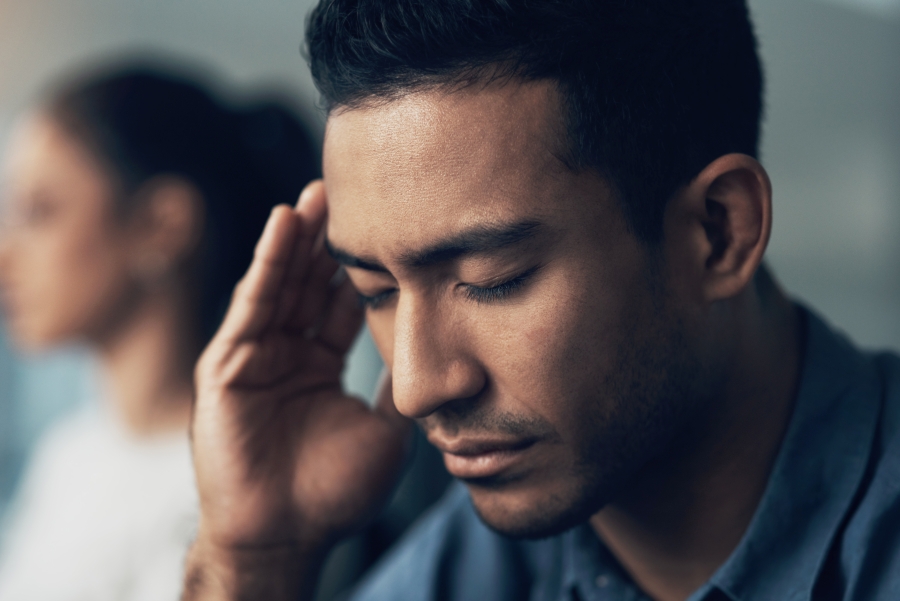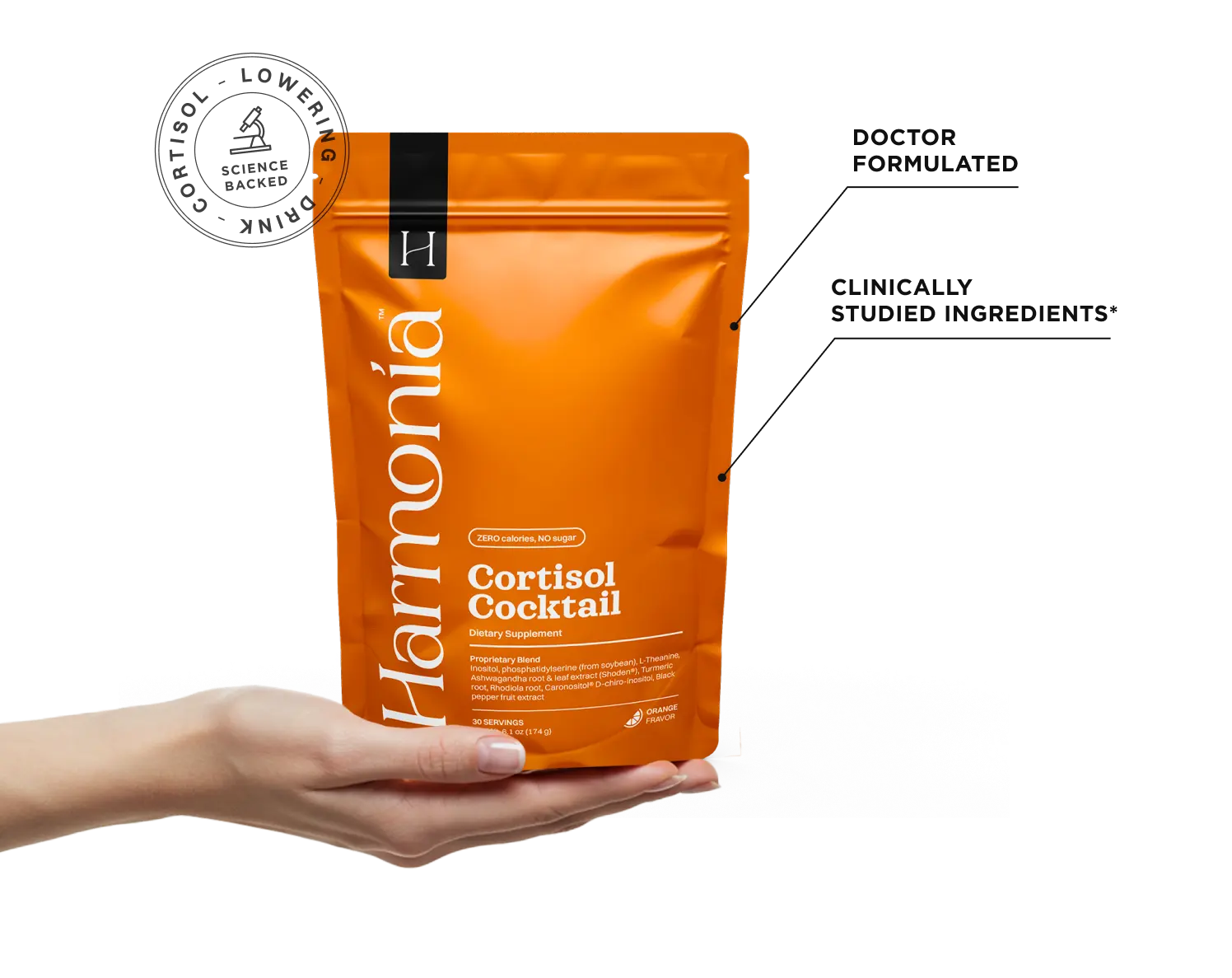Do men have cortisol? The short answer is yes - men absolutely have cortisol, and it plays a crucial role in health, stress regulation, and hormone balance. While often called the “stress hormone,” cortisol is far more than that. For men, it influences energy, metabolism, testosterone, sleep, and even emotional well-being.
Understanding cortisol in men matters because imbalances can disrupt testosterone, increase belly fat, cause fatigue, and reduce overall quality of life. Yet, with the right knowledge and support, men can take control of their cortisol levels naturally.
What Is Cortisol and How Does It Work in Men?
Cortisol is a glucocorticoid hormone produced by the adrenal glands, located above the kidneys. It’s best known for fueling the “fight or flight” stress response, but its functions extend into everyday life. In men, cortisol helps regulate:
- Metabolism: How the body uses carbs, fats, and proteins.
- Immune function: Controlling inflammation and defense against illness.
- Energy rhythms: Peaking in the morning to help you wake up and dropping at night to support sleep.
- Stress response: Preparing the body for challenges.
Male cortisol levels follow a natural rhythm called the cortisol awakening response (CAR). Cortisol rises sharply in the first hour after waking, gradually declines during the day, and is lowest at night.
Contrary to myths, cortisol is not a “female hormone.” Cortisol in men is essential for energy, focus, and resilience - but only when kept in balance.
Cortisol and Testosterone: The Hormonal Connection

Two of the most influential hormones in a man’s body - cortisol and testosterone - often stand in opposition. Cortisol is the hormone of survival, mobilizing energy for immediate challenges, while testosterone is the hormone of growth, strength, reproduction, and long-term vitality.
When cortisol rises in short bursts, such as during a workout or a stressful presentation, the body adapts and recovers. This temporary increase is natural and even beneficial. But when cortisol stays elevated for weeks or months, it begins to pull resources away from testosterone production. Men may notice their libido slipping, muscle mass declining, and energy reserves shrinking.
The relationship between these two hormones can be thought of as a seesaw: as cortisol remains high, testosterone tends to sink. This imbalance has far-reaching effects - from belly fat and poor recovery after exercise to low mood and reduced confidence.
Some men even experience “high cortisol, low testosterone syndrome,” where stress dominates the body’s hormonal landscape, leaving little room for strength, vitality, and reproductive health.
Striking the right balance between cortisol and testosterone is not about eliminating stress entirely - that’s impossible. Instead, it’s about building resilience so the body can respond to challenges without sacrificing long-term hormonal health.
Signs and Symptoms of High Cortisol in Men
When cortisol stays elevated for too long, men may notice wide-ranging symptoms. Common signs of high cortisol in men include:
- Weight gain, especially around the midsection (adrenal belly fat).
- Muscle loss and weakness.
- Persistent fatigue and energy crashes.
- Mood changes.
- Sleep disturbances.
- Sexual health concerns.
- Immune suppression.
These symptoms can creep up gradually, making them easy to dismiss as “normal aging.” But if left unchecked, they may contribute to serious health conditions like metabolic syndrome, diabetes, or cardiovascular disease.
What Causes High Cortisol Levels in Males?
Cortisol imbalance rarely comes from a single source. Instead, it’s usually the result of compounded stressors and modern lifestyle patterns that push the body beyond its natural coping capacity.
Chronic Psychological Stress
Men often carry significant pressure from careers, finances, and family responsibilities. The body interprets these as ongoing threats, keeping cortisol elevated.
Disrupted Sleep Cycles
Sleep is when cortisol resets, but late nights, irregular schedules, and screen exposure interfere with the natural circadian rhythm. Men who cut corners on sleep often see cortisol spike the next morning and stay high throughout the day.
Overtraining and Physical Strain.
While exercise is healthy, too much intensity without recovery creates a stress load the body perceives as chronic danger, raising cortisol instead of lowering it.
Dietary Triggers

Excessive caffeine, alcohol, refined sugar, and processed foods all stimulate cortisol release and can destabilize blood sugar, compounding the stress response.
Medical and Hormonal Factors
Conditions like thyroid imbalance, metabolic syndrome, or naturally declining testosterone with age can all influence how the body produces and regulates cortisol.
Environmental and Lifestyle Factors
Constant digital stimulation, exposure to blue light at night, long commutes, and lack of time outdoors all act as subtle stressors that, over time, elevate cortisol.
Low Cortisol in Men: When the Stress Hormone Drops Too Far
While high cortisol gets the most attention, some men struggle with low cortisol levels.
Low cortisol in men often results from adrenal exhaustion, where the glands no longer produce adequate amounts after years of overactivation.
Symptoms of low cortisol in men may include:
- Constant fatigue
- Brain fog and poor concentration
- Low blood pressure or dizziness
- Low motivation and mood changes
Balance is critical. Both high cortisol and low cortisol can disrupt male health, energy, and testosterone production.
How to Lower Cortisol in Men Naturally
Restoring healthy cortisol levels isn’t about eliminating stress completely - that’s impossible in modern life. Instead, the goal is to build resilience so the body can handle challenges without tipping into hormonal imbalance.
Men can lower cortisol naturally through daily habits that support the nervous system, improve recovery, and encourage testosterone balance.
Lifestyle and Stress Management
- Exercise smart: Moderate strength training and cardio help regulate cortisol, but avoid overtraining.
- Mindfulness practices: Meditation, deep breathing, and yoga lower stress and calm the nervous system.
- Sleep hygiene: Go to bed and wake up at consistent times, avoid screens before bed, and create a restful environment.
Dietary Support
- Whole, nutrient-dense foods: Lean proteins, whole grains, fruits, vegetables, and healthy fats.
- Avoid cortisol-triggering foods: Cut back on excess sugar, processed carbs, caffeine, and alcohol.
- Stay hydrated: Dehydration increases cortisol release.
Supplement Support
Some men also turn to adaptogens and nutrient blends for extra support. A drink like Harmonia Cortisol Cocktail combines ingredients such as Ashwagandha, Rhodiola, L-theanine, and magnesium to help lower stress hormones, improve sleep, and support hormonal balance—making it a convenient option alongside diet and lifestyle habits.
How to Lower Cortisol and Increase Testosterone Together

Men often ask how to manage cortisol while also boosting testosterone. Key strategies include:
- Strength training with recovery: Build muscle while avoiding prolonged stress on the body.
- Nutrient support: Zinc, magnesium, vitamin D, and omega-3s are critical for testosterone balance.
- Adaptogens: Herbs like Ashwagandha and Rhodiola Rosea help lower cortisol and may support healthy testosterone.
Conclusion
So, do men have cortisol? Absolutely - and it plays a vital role in stress management, energy, and hormone health. When cortisol becomes imbalanced, men may face fatigue, weight gain, low testosterone, and restless sleep.
The good news? Cortisol can be managed naturally. Through smart lifestyle choices, balanced nutrition, and evidence-based support like Harmonia’s cortisol-lowering blend, men can reduce stress, improve testosterone balance, and feel like themselves again.
Ready to take control of your stress hormones? Take Harmonia’s quiz today to discover your personalized path to better cortisol balance, improved sleep, and steady energy.
References
- Liu, P. Y., & Reddy, R. T. (2022). Sleep, testosterone and cortisol balance, and ageing men. Reviews in Endocrine and Metabolic Disorders, 23(6), 1323-1339. Link.
- Teo, C. H., Wong, A. C. H., Sivakumaran, R. N., Parhar, I., & Soga, T. (2023). Gender differences in cortisol and cortisol receptors in depression: a narrative review. International journal of molecular sciences, 24(8), 7129. Link.







